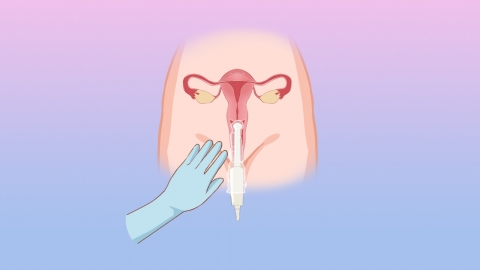What is the best medication for pelvic inflammatory disease and adnexitis?
Generally speaking, there is no specific medication that is considered the most effective for treating pelvic inflammatory disease (PID) and adnexitis. PID and adnexitis may be caused by postpartum or post-abortion infections, poor menstrual hygiene, cervicitis, appendicitis, endometritis, and other factors. It is recommended to seek timely medical attention and follow a doctor's guidance regarding the use of medications such as cefixime dispersible tablets, Gongyanping tablets, azithromycin dispersible tablets, amoxicillin capsules, and levofloxacin tablets. Detailed explanations are as follows:

1. Postpartum or post-abortion infection
After childbirth or abortion, women's bodies are relatively weak, the cervix is open, and there may be retained placental or fetal membrane remnants. Bacteria from the vagina and cervix may ascend and cause infection, leading to pelvic inflammatory disease and adnexitis. Usually, medication is not required. After childbirth or abortion, it is important to maintain personal hygiene, keep the vulva clean, avoid sexual intercourse too early, and strictly follow medical advice for postnatal care and follow-up examinations.
2. Poor menstrual hygiene
During menstruation, the endometrium sheds, creating a wound surface in the uterine cavity, and the cervix is slightly open. If menstrual hygiene is neglected, such as using unclean sanitary pads or toilet paper, or taking baths or engaging in sexual activity during menstruation, pathogens may enter the reproductive system and cause inflammation. Generally, medication is not required. During menstruation, it is important to change sanitary pads and underwear frequently, maintain vulvar cleanliness, avoid baths and sexual activity, and choose reliable, high-quality sanitary products.
3. Cervicitis
Cervicitis is caused by pathogenic infections of the cervix, such as Neisseria gonorrhoeae or Chlamydia trachomatis. When the inflammation spreads to the pelvis, it may cause pelvic inflammatory disease and adnexitis. Symptoms may also include increased vaginal discharge, cervical congestion, and edema. Under a doctor's guidance, medications such as cefixime dispersible tablets, Gongyanping tablets, and Kanggongyan tablets may be used for treatment.
4. Appendicitis
Appendicitis may be related to obstruction of the appendix lumen and bacterial infection. The inflammation may spread to the pelvis through the lymphatic system or directly, causing adnexitis. Symptoms may include nausea and vomiting. Patients may follow medical advice and use medications such as azithromycin dispersible tablets, amoxicillin capsules, and ibuprofen sustained-release capsules for treatment.
5. Endometritis
Endometritis is usually caused by bacteria ascending from the vagina and cervix, spreading downward through the fallopian tubes, or reaching the endometrium via the lymphatic system. Inflammatory stimulation causes the endometrium to become congested and edematous, and the inflammation may spread to the pelvis and adnexa. Symptoms may also include fever, increased vaginal discharge with an unpleasant odor. Under a doctor's recommendation, patients may use medications such as levofloxacin tablets, ornidazole tablets, and clindamycin hydrochloride capsules for treatment.
In daily life, maintaining personal hygiene, regularly cleaning the vulva, and keeping it dry and clean are important. Additionally, maintaining good sexual hygiene can help reduce the risk of infection.




